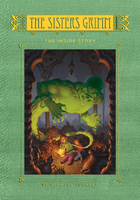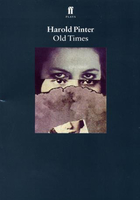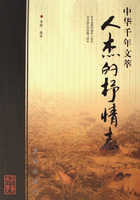THE prince suddenly approached Evgenie Pavlovitch.
"Evgenie Pavlovitch," he said, with strange excitement and seizing the latter's hand in his own, "be assured that I esteem you as a generous and honourable man, in spite of everything. Be assured of that."
Evgenie Pavlovitch fell back a step in astonishment. For one moment it was all he could do to restrain himself from bursting out laughing; but, looking closer, he observed that the prince did not seem to be quite himself; at all events, he was in a very curious state.
"I wouldn't mind betting, prince," he cried, "that you did not in the least mean to say that, and very likely you meant to address someone else altogether. What is it? Are you feeling unwell or anything?"
"Very likely, extremely likely, and you must be a very close observer to detect the fact that perhaps I did not intend to come up to YOU at all."
So saying he smiled strangely; but suddenly and excitedly he began again:
"Don't remind me of what I have done or said. Don't! I am very much ashamed of myself, I—"
"Why, what have you done? I don't understand you."
"I see you are ashamed of me, Evgenie Pavlovitch; you are blushing for me; that's a sign of a good heart. Don't be afraid; I shall go away directly."
"What's the matter with him? Do his fits begin like that?" said Lizabetha Prokofievna, in a high state of alarm, addressing Colia.
"No, no, Lizabetha Prokofievna, take no notice of me. I am not going to have a fit. I will go away directly; but I know I am afflicted. I was twenty-four years an invalid, you see—the first twenty-four years of my life—so take all I do and say as the sayings and actions of an invalid. I'm going away directly, I really am—don't be afraid. I am not blushing, for I don't think I need blush about it, need I? But I see that I am out of place in society—society is better without me. It's not vanity, I assure you. I have thought over it all these last three days, and I have made up my mind that I ought to unbosom myself candidly before you at the first opportunity. There are certain things, certain great ideas, which I must not so much as approach, as Prince S. has just reminded me, or I shall make you all laugh. I have no sense of proportion, I know; my words and gestures do not express my ideas—they are a humiliation and abasement of the ideas, and therefore, I have no right—and I am too sensitive. Still, I believe I am beloved in this household, and esteemed far more than I deserve. But I can't help knowing that after twenty-four years of illness there must be some trace left, so that it is impossible for people to refrain from laughing at me sometimes; don't you think so?"
He seemed to pause for a reply, for some verdict, as it were, and looked humbly around him.
All present stood rooted to the earth with amazement at this unexpected and apparently uncalled-for outbreak; but the poor prince's painful and rambling speech gave rise to a strange episode.
"Why do you say all this here?" cried Aglaya, suddenly. "Why do you talk like this to THEM?"
She appeared to be in the last stages of wrath and irritation; her eyes flashed. The prince stood dumbly and blindly before her, and suddenly grew pale.
"There is not one of them all who is worthy of these words of yours," continued Aglaya. "Not one of them is worth your little finger, not one of them has heart or head to compare with yours! You are more honest than all, and better, nobler, kinder, wiser than all. There are some here who are unworthy to bend and pick up the handkerchief you have just dropped. Why do you humiliate yourself like this, and place yourself lower than these people? Why do you debase yourself before them? Why have you no pride?"
"My God! Who would ever have believed this?" cried Mrs. Epanchin, wringing her hands.
"Hurrah for the 'poor knight'!" cried Colia.
"Be quiet! How dare they laugh at me in your house?" said Aglaya, turning sharply on her mother in that hysterical frame of mind that rides recklessly over every obstacle and plunges blindly through proprieties. "Why does everyone, everyone worry and torment me? Why have they all been bullying me these three days about you, prince? I will not marry you—never, and under no circumstances! Know that once and for all; as if anyone could marry an absurd creature like you! Just look in the glass and see what you look like, this very moment! Why, WHY do they torment me and say I am going to marry you? You must know it; you are in the plot with them!"
"No one ever tormented you on the subject," murmured Adelaida, aghast.
"No one ever thought of such a thing! There has never been a word said about it!" cried Alexandra.
"Who has been annoying her? Who has been tormenting the child? Who could have said such a thing to her? Is she raving?" cried Lizabetha Prokofievna, trembling with rage, to the company in general.
"Every one of them has been saying it—every one of them—all these three days! And I will never, never marry him!"
So saying, Aglaya burst into bitter tears, and, hiding her face in her handkerchief, sank back into a chair.
"But he has never even—"
"I have never asked you to marry me, Aglaya Ivanovna!" said the prince, of a sudden.
"WHAT?" cried Mrs. Epanchin, raising her hands in horror. "WHAT'S that?"
She could not believe her ears.
"I meant to say—I only meant to say," said the prince, faltering, "I merely meant to explain to Aglaya Ivanovna—to have the honour to explain, as it were—that I had no intention—never had—to ask the honour of her hand. I assure you I am not guilty, Aglaya Ivanovna, I am not, indeed. I never did wish to—I never thought of it at all—and never shall—you'll see it yourself—you may be quite assured of it. Some wicked person has been maligning me to you; but it's all right. Don't worry about it."
So saying, the prince approached Aglaya.
She took the handkerchief from her face, glanced keenly at him, took in what he had said, and burst out laughing—such a merry, unrestrained laugh, so hearty and gay, that. Adelaida could not contain herself. She, too, glanced at the prince's panic-stricken countenance, then rushed at her sister, threw her arms round her neck, and burst into as merry a fit of laughter as Aglaya's own. They laughed together like a couple of school-girls. Hearing and seeing this, the prince smiled happily, and in accents of relief and joy, he exclaimed "Well, thank God—thank God!"
Alexandra now joined in, and it looked as though the three sisters were going to laugh on for ever.
"They are insane," muttered Lizabetha Prokofievna. "Either they frighten one out of one's wits, or else—"
But Prince S. was laughing now, too, so was Evgenie Pavlovitch, so was Colia, and so was the prince himself, who caught the infection as he looked round radiantly upon the others.
"Come along, let's go out for a walk!" cried Adelaida. "We'll all go together, and the prince must absolutely go with us. You needn't go away, you dear good fellow! ISN'T he a dear, Aglaya? Isn't he, mother? I must really give him a kiss for—for his explanation to Aglaya just now. Mother, dear, I may kiss him, mayn't I? Aglaya, may I kiss YOUR prince?" cried the young rogue, and sure enough she skipped up to the prince and kissed his forehead.
He seized her hands, and pressed them so hard that Adelaida nearly cried out; he then gazed with delight into her eyes, and raising her right hand to his lips with enthusiasm, kissed it three times.
"Come along," said Aglaya. "Prince, you must walk with me. May he, mother? This young cavalier, who won't have me? You said you would NEVER have me, didn't you, prince? No-no, not like that; THAT'S not the way to give your arm. Don't you know how to give your arm to a lady yet? There—so. Now, come along, you and I will lead the way. Would you like to lead the way with me alone, tete-a-tete?"
She went on talking and chatting without a pause, with occasional little bursts of laughter between.
"Thank God—thank God!" said Lizabetha Prokofievna to herself, without quite knowing why she felt so relieved.
"What extraordinary people they are!" thought Prince S., for perhaps the hundredth time since he had entered into intimate relations with the family; but—he liked these "extraordinary people," all the same. As for Prince Lef Nicolaievitch himself, Prince S. did not seem quite to like him, somehow. He was decidedly preoccupied and a little disturbed as they all started off.
Evgenie Pavlovitch seemed to be in a lively humour. He made Adelaida and Alexandra laugh all the way to the Vauxhall; but they both laughed so very really and promptly that the worthy Evgenie began at last to suspect that they were not listening to him at all.
At this idea, he burst out laughing all at once, in quite unaffected mirth, and without giving any explanation.
The sisters, who also appeared to be in high spirits, never tired of glancing at Aglaya and the prince, who were walking in front. It was evident that their younger sister was a thorough puzzle to them both.
Prince S. tried hard to get up a conversation with Mrs. Epanchin upon outside subjects, probably with the good intention of distracting and amusing her; but he bored her dreadfully. She was absent-minded to a degree, and answered at cross purposes, and sometimes not at all.
But the puzzle and mystery of Aglaya was not yet over for the evening. The last exhibition fell to the lot of the prince alone. When they had proceeded some hundred paces or so from the house, Aglaya said to her obstinately silent cavalier in a quick half-whisper:
"Look to the right!"
The prince glanced in the direction indicated.
"Look closer. Do you see that bench, in the park there, just by those three big trees—that green bench?"
The prince replied that he saw it.
"Do you like the position of it? Sometimes of a morning early, at seven o'clock, when all the rest are still asleep, I come out and sit there alone."
The prince muttered that the spot was a lovely one.
"Now, go away, I don't wish to have your arm any longer; or perhaps, better, continue to give me your arm, and walk along beside me, but don't speak a word to me. I wish to think by myself."
The warning was certainly unnecessary; for the prince would not have said a word all the rest of the time whether forbidden to speak or not. His heart beat loud and painfully when Aglaya spoke of the bench; could she—but no! he banished the thought, after an instant's deliberation.
At Pavlofsk, on weekdays, the public is more select than it is on Sundays and Saturdays, when the townsfolk come down to walk about and enjoy the park.
The ladies dress elegantly, on these days, and it is the fashion to gather round the band, which is probably the best of our pleasure-garden bands, and plays the newest pieces. The behaviour of the public is most correct and proper, and there is an appearance of friendly intimacy among the usual frequenters. Many come for nothing but to look at their acquaintances, but there are others who come for the sake of the music. It is very seldom that anything happens to break the harmony of the proceedings, though, of course, accidents will happen everywhere.
On this particular evening the weather was lovely, and there were a large number of people present. All the places anywhere near the orchestra were occupied.
Our friends took chairs near the side exit. The crowd and the music cheered Mrs. Epanchin a little, and amused the girls; they bowed and shook hands with some of their friends and nodded at a distance to others; they examined the ladies' dresses, noticed comicalities and eccentricities among the people, and laughed and talked among themselves. Evgenie Pavlovitch, too, found plenty of friends to bow to. Several people noticed Aglaya and the prince, who were still together.
Before very long two or three young men had come up, and one or two remained to talk; all of these young men appeared to be on intimate terms with Evgenie Pavlovitch. Among them was a young officer, a remarkably handsome fellow—very good-natured and a great chatterbox. He tried to get up a conversation with Aglaya, and did his best to secure her attention. Aglaya behaved very graciously to him, and chatted and laughed merrily. Evgenie Pavlovitch begged the prince's leave to introduce their friend to him. The prince hardly realized what was wanted of him, but the introduction came off; the two men bowed and shook hands.
Evgenie Pavlovitch's friend asked the prince some question, but the latter did not reply, or if he did, he muttered something so strangely indistinct that there was nothing to be made of it. The officer stared intently at him, then glanced at Evgenie, divined why the latter had introduced him, and gave his undivided attention to Aglaya again. Only Evgenie Pavlovitch observed that Aglaya flushed up for a moment at this.
The prince did not notice that others were talking and making themselves agreeable to Aglaya; in fact, at moments, he almost forgot that he was sitting by her himself. At other moments he felt a longing to go away somewhere and be alone with his thoughts, and to feel that no one knew where he was.
Or if that were impossible he would like to be alone at home, on the terrace-without either Lebedeff or his children, or anyone else about him, and to lie there and think—a day and night and another day again! He thought of the mountains-and especially of a certain spot which he used to frequent, whence he would look down upon the distant valleys and fields, and see the waterfall, far off, like a little silver thread, and the old ruined castle in the distance. Oh! how he longed to be there now—alone with his thoughts—to think of one thing all his life—one thing! A thousand years would not be too much time! And let everyone here forget him—forget him utterly! How much better it would have been if they had never known him—if all this could but prove to be a dream. Perhaps it was a dream!
Now and then he looked at Aglaya for five minutes at a time, without taking his eyes off her face; but his expression was very strange; he would gaze at her as though she were an object a couple of miles distant, or as though he were looking at her portrait and not at herself at all.
"Why do you look at me like that, prince?" she asked suddenly, breaking off her merry conversation and laughter with those about her. "I'm afraid of you! You look as though you were just going to put out your hand and touch my face to see if it's real! Doesn't he, Evgenie Pavlovitch—doesn't he look like that?"
The prince seemed surprised that he should have been addressed at all; he reflected a moment, but did not seem to take in what had been said to him; at all events, he did not answer. But observing that she and the others had begun to laugh, he too opened his mouth and laughed with them.
The laughter became general, and the young officer, who seemed a particularly lively sort of person, simply shook with mirth.
Aglaya suddenly whispered angrily to herself the word—
"Idiot!"
"My goodness—surely she is not in love with such a—surely she isn't mad!" groaned Mrs. Epanchin, under her breath.
"It's all a joke, mamma; it's just a joke like the 'poor knight'—nothing more whatever, I assure you!" Alexandra whispered in her ear. "She is chaffing him—making a fool of him, after her own private fashion, that's all! But she carries it just a little too far—she is a regular little actress. How she frightened us just now—didn't she?—and all for a lark!"
"Well, it's lucky she has happened upon an idiot, then, that's all I can say!" whispered Lizabetha Prokofievna, who was somewhat comforted, however, by her daughter's remark.
The prince had heard himself referred to as "idiot," and had shuddered at the moment; but his shudder, it so happened, was not caused by the word applied to him. The fact was that in the crowd, not far from where lie was sitting, a pale familiar face, with curly black hair, and a well-known smile and expression, had flashed across his vision for a moment, and disappeared again. Very likely he had imagined it! There only remained to him the impression of a strange smile, two eyes, and a bright green tie. Whether the man had disappeared among the crowd, or whether he had turned towards the Vauxhall, the prince could not say.
But a moment or two afterwards he began to glance keenly about him. That first vision might only too likely be the forerunner of a second; it was almost certain to be so. Surely he had not forgotten the possibility of such a meeting when he came to the Vauxhall? True enough, he had not remarked where he was coming to when he set out with Aglaya; he had not been in a condition to remark anything at all.
Had he been more careful to observe his companion, he would have seen that for the last quarter of an hour Aglaya had also been glancing around in apparent anxiety, as though she expected to see someone, or something particular, among the crowd of people. Now, at the moment when his own anxiety became so marked, her excitement also increased visibly, and when he looked about him, she did the same.
The reason for their anxiety soon became apparent. From that very side entrance to the Vauxhall, near which the prince and all the Epanchin party were seated, there suddenly appeared quite a large knot of persons, at least a dozen.
Heading this little band walked three ladies, two of whom were remarkably lovely; and there was nothing surprising in the fact that they should have had a large troop of admirers following in their wake.
But there was something in the appearance of both the ladies and their admirers which was peculiar, quite different for that of the rest of the public assembled around the orchestra.
Nearly everyone observed the little band advancing, and all pretended not to see or notice them, except a few young fellows who exchanged glances and smiled, saying something to one another in whispers.
It was impossible to avoid noticing them, however, in reality, for they made their presence only too conspicuous by laughing and talking loudly. It was to be supposed that some of them were more than half drunk, although they were well enough dressed, some even particularly well. There were one or two, however, who were very strange-looking creatures, with flushed faces and extraordinary clothes; some were military men; not all were quite young; one or two were middle-aged gentlemen of decidedly disagreeable appearance, men who are avoided in society like the plague, decked out in large gold studs and rings, and magnificently "got up," generally.
Among our suburban resorts there are some which enjoy a specially high reputation for respectability and fashion; but the most careful individual is not absolutely exempt from the danger of a tile falling suddenly upon his head from his neighbour's roof.
Such a tile was about to descend upon the elegant and decorous public now assembled to hear the music.
In order to pass from the Vauxhall to the band-stand, the visitor has to descend two or three steps. Just at these steps the group paused, as though it feared to proceed further; but very quickly one of the three ladies, who formed its apex, stepped forward into the charmed circle, followed by two members of her suite.
One of these was a middle-aged man of very respectable appearance, but with the stamp of parvenu upon him, a man whom nobody knew, and who evidently knew nobody. The other follower was younger and far less respectable-looking.
No one else followed the eccentric lady; but as she descended the steps she did not even look behind her, as though it were absolutely the same to her whether anyone were following or not. She laughed and talked loudly, however, just as before. She was dressed with great taste, but with rather more magnificence than was needed for the occasion, perhaps.
She walked past the orchestra, to where an open carriage was waiting, near the road.
The prince had not seen HER for more than three months. All these days since his arrival from Petersburg he had intended to pay her a visit, but some mysterious presentiment had restrained him. He could not picture to himself what impression this meeting with her would make upon him, though he had often tried to imagine it, with fear and trembling. One fact was quite certain, and that was that the meeting would be painful.
Several times during the last six months he had recalled the effect which the first sight of this face had had upon him, when he only saw its portrait. He recollected well that even the portrait face had left but too painful an impression.
That month in the provinces, when he had seen this woman nearly every day, had affected him so deeply that he could not now look back upon it calmly. In the very look of this woman there was something which tortured him. In conversation with Rogojin he had attributed this sensation to pity—immeasurable pity, and this was the truth. The sight of the portrait face alone had filled his heart full of the agony of real sympathy; and this feeling of sympathy, nay, of actual SUFFERING, for her, had never left his heart since that hour, and was still in full force. Oh yes, and more powerful than ever!
But the prince was not satisfied with what he had said to Rogojin. Only at this moment, when she suddenly made her appearance before him, did he realize to the full the exact emotion which she called up in him, and which he had not described correctly to Rogojin.
And, indeed, there were no words in which he could have expressed his horror, yes, HORROR, for he was now fully convinced from his own private knowledge of her, that the woman was mad.
If, loving a woman above everything in the world, or at least having a foretaste of the possibility of such love for her, one were suddenly to behold her on a chain, behind bars and under the lash of a keeper, one would feel something like what the poor prince now felt.
"What's the matter?" asked Aglaya, in a whisper, giving his sleeve a little tug.
He turned his head towards her and glanced at her black and (for some reason) flashing eyes, tried to smile, and then, apparently forgetting her in an instant, turned to the right once more, and continued to watch the startling apparition before him.
Nastasia Philipovna was at this moment passing the young ladies' chairs.
Evgenie Pavlovitch continued some apparently extremely funny and interesting anecdote to Alexandra, speaking quickly and with much animation. The prince remembered that at this moment Aglaya remarked in a half-whisper:
"WHAT a—"
She did not finish her indefinite sentence; she restrained herself in a moment; but it was enough.
Nastasia Philipovna, who up to now had been walking along as though she had not noticed the Epanchin party, suddenly turned her head in their direction, as though she had just observed Evgenie Pavlovitch sitting there for the first time.
"Why, I declare, here he is!" she cried, stopping suddenly. "The man one can't find with all one's messengers sent about the place, sitting just under one's nose, exactly where one never thought of looking! I thought you were sure to be at your uncle's by this time."
Evgenie Pavlovitch flushed up and looked angrily at Nastasia Philipovna, then turned his back on her.
"What I don't you know about it yet? He doesn't know—imagine that! Why, he's shot himself. Your uncle shot himself this very morning. I was told at two this afternoon. Half the town must know it by now. They say there are three hundred and fifty thousand roubles, government money, missing; some say five hundred thousand. And I was under the impression that he would leave you a fortune! He's whistled it all away. A most depraved old gentleman, really! Well, ta, ta!—bonne chance! Surely you intend to be off there, don't you? Ha, ha! You've retired from the army in good time, I see! Plain clothes! Well done, sly rogue! Nonsense! I see—you knew it all before—I dare say you knew all about it yesterday-"
Although the impudence of this attack, this public proclamation of intimacy, as it were, was doubtless premeditated, and had its special object, yet Evgenie Pavlovitch at first seemed to intend to make no show of observing either his tormentor or her words. But Nastasia's communication struck him with the force of a thunderclap. On hearing of his uncle's death he suddenly grew as white as a sheet, and turned towards his informant.
At this moment, Lizabetha Prokofievna rose swiftly from her seat, beckoned her companions, and left the place almost at a run.
Only the prince stopped behind for a moment, as though in indecision; and Evgenie Pavlovitch lingered too, for he had not collected his scattered wits. But the Epanchins had not had time to get more than twenty paces away when a scandalous episode occurred. The young officer, Evgenie Pavlovitch's friend who had been conversing with Aglaya, said aloud in a great state of indignation:
"She ought to be whipped—that's the only way to deal with creatures like that—she ought to be whipped!"
This gentleman was a confidant of Evgenie's, and had doubtless heard of the carriage episode.
Nastasia turned to him. Her eyes flashed; she rushed up to a young man standing near, whom she did not know in the least, but who happened to have in his hand a thin cane. Seizing this from him, she brought it with all her force across the face of her insulter.
All this occurred, of course, in one instant of time.
The young officer, forgetting himself, sprang towards her. Nastasia's followers were not by her at the moment (the elderly gentleman having disappeared altogether, and the younger man simply standing aside and roaring with laughter).
In another moment, of course, the police would have been on the spot, and it would have gone hard with Nastasia Philipovna had not unexpected aid appeared.
Muishkin, who was but a couple of steps away, had time to spring forward and seize the officer's arms from behind.
The officer, tearing himself from the prince's grasp, pushed him so violently backwards that he staggered a few steps and then subsided into a chair.
But there were other defenders for Nastasia on the spot by this time. The gentleman known as the "boxer" now confronted the enraged officer.
"Keller is my name, sir; ex-lieutenant," he said, very loud. "If you will accept me as champion of the fair sex, I am at your disposal. English boxing has no secrets from me. I sympathize with you for the insult you have received, but I can't permit you to raise your hand against a woman in public. If you prefer to meet me—as would be more fitting to your rank—in some other manner, of course you understand me, captain."
But the young officer had recovered himself, and was no longer listening. At this moment Rogojin appeared, elbowing through the crowd; he took Nastasia's hand, drew it through his arm, and quickly led her away. He appeared to be terribly excited; he was trembling all over, and was as pale as a corpse. As he carried Nastasia off, he turned and grinned horribly in the officer's face, and with low malice observed:
"Tfu! look what the fellow got! Look at the blood on his cheek! Ha, ha!"
Recollecting himself, however, and seeing at a glance the sort of people he had to deal with, the officer turned his back on both his opponents, and courteously, but concealing his face with his handkerchief, approached the prince, who was now rising from the chair into which he had fallen.
"Prince Muishkin, I believe? The gentleman to whom I had the honour of being introduced?"
"She is mad, insane—I assure you, she is mad," replied the prince in trembling tones, holding out both his hands mechanically towards the officer.
"I cannot boast of any such knowledge, of course, but I wished to know your name."
He bowed and retired without waiting for an answer.
Five seconds after the disappearance of the last actor in this scene, the police arrived. The whole episode had not lasted more than a couple of minutes. Some of the spectators had risen from their places, and departed altogether; some merely exchanged their seats for others a little further off; some were delighted with the occurrence, and talked and laughed over it for a long time.
In a word, the incident closed as such incidents do, and the band began to play again. The prince walked away after the Epanchin party. Had he thought of looking round to the left after he had been pushed so unceremoniously into the chair, he would have observed Aglaya standing some twenty yards away. She had stayed to watch the scandalous scene in spite of her mother's and sisters' anxious cries to her to come away.
Prince S. ran up to her and persuaded her, at last, to come home with them.
Lizabetha Prokofievna saw that she returned in such a state of agitation that it was doubtful whether she had even heard their calls. But only a couple of minutes later, when they had reached the park, Aglaya suddenly remarked, in her usual calm, indifferent voice:
"I wanted to see how the farce would end."















